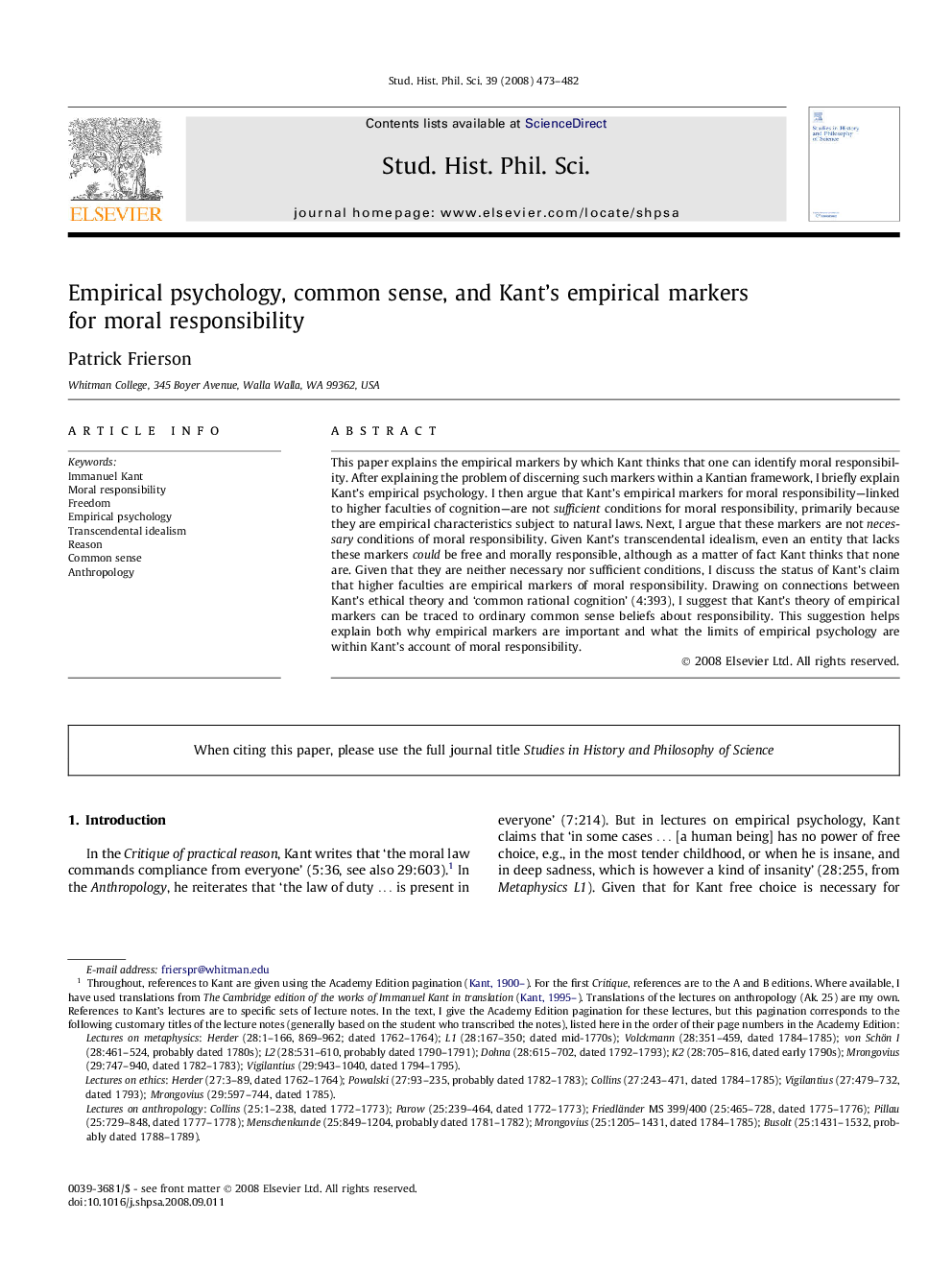| کد مقاله | کد نشریه | سال انتشار | مقاله انگلیسی | نسخه تمام متن |
|---|---|---|---|---|
| 1160700 | 1490358 | 2008 | 10 صفحه PDF | دانلود رایگان |

This paper explains the empirical markers by which Kant thinks that one can identify moral responsibility. After explaining the problem of discerning such markers within a Kantian framework, I briefly explain Kant’s empirical psychology. I then argue that Kant’s empirical markers for moral responsibility—linked to higher faculties of cognition—are not sufficient conditions for moral responsibility, primarily because they are empirical characteristics subject to natural laws. Next, I argue that these markers are not necessary conditions of moral responsibility. Given Kant’s transcendental idealism, even an entity that lacks these markers could be free and morally responsible, although as a matter of fact Kant thinks that none are. Given that they are neither necessary nor sufficient conditions, I discuss the status of Kant’s claim that higher faculties are empirical markers of moral responsibility. Drawing on connections between Kant’s ethical theory and ‘common rational cognition’ (4:393), I suggest that Kant’s theory of empirical markers can be traced to ordinary common sense beliefs about responsibility. This suggestion helps explain both why empirical markers are important and what the limits of empirical psychology are within Kant’s account of moral responsibility.
Journal: Studies in History and Philosophy of Science Part A - Volume 39, Issue 4, December 2008, Pages 473–482